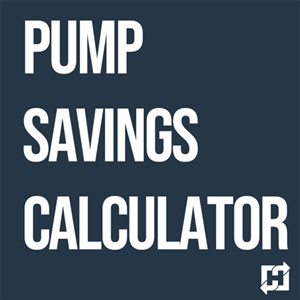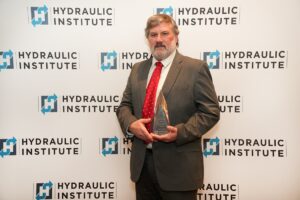HI Launches Free Pump Savings Calculator

HI Launches Free Pump Savings Calculator. (Image source: Hydraulic Institute Inc.)
The Hydraulic Institute (HI) announces the launch of its Pump Savings Calculator to assist specifiers and end users in determining the most energy and cost-efficient pump systems for their applications. Free to all as a downloadable work tool, the Pump Savings Calculator factors the impacts of potential energy savings, based on the HI Energy Rating, alongside other variables like initial cost, installation, maintenance, etc. The calculator is the latest addition to HI’s suite of resources to make energy-saving pump solutions more accessible.
“Pumps can account for 40 percent of energy usage in industrial fluid systems,” Michael Michaud, Executive Director, Hydraulic Institute said. “While reliability comes first in pump system design, there is good incentive for stakeholders—including manufacturers, commercial builders and municipalities—to improve the energy efficiency of pump systems and potentially generate significant cost savings. We designed the Pump Savings Calculator to help ease that journey.”
The tool features two calculator options: one that runs cost savings for general scenarios and one that runs cost savings for site-specific scenarios. This design enables users to best estimate potential savings in more than one capacity. The tool draws on HI’s Energy Rating (ER) Program database of rated pumps to calculate potential energy savings and incremental cost increases for different Energy Ratings available on specific pumps and add-ons like variable speed controls that can be installed on constant speed pump. Users are also provided with relevant considerations around research that underpins the calculations, and the Department of Energy (DOE) regulations, such as the new U.S. Energy Conservation Standard for certain clean-water pumps, which went into effect in January.
“As HI grows its collection of data and insights that can better inform pump system assembly, it’s incumbent upon us to make it available to specifiers and end users so they can make the best possible decisions,” said Michaud. “And now, more than ever, it’s important for these parties to have time-saving digital tools to inform their research.”
Source: Hydraulic Institute Inc.




